Knowing your business’s market value is important information for any business owner, whether you plan to sell your business, are doing estate planning with your financial advisor, or are interested in obtaining a loan. While determining the value of your company is important, like most busy owners, you are probably also wondering, how long does a business valuation take? On average, it takes a professional analyst approximately 2 weeks to complete a thorough, well-supported business valuation. The specific time frame is influenced by 4 main factors.
Factor 1: Availability of Necessary Documents
One of the greatest factors impacting how long it takes to complete a valuation is how long the analyst must wait to receive the necessary documents from the business. The sooner financial documents are provided, the sooner analysts can begin the comprehensive business valuation process. For reference, the following information is needed for Viking M&A to complete a business valuation in the Southeast U.S.:
- Past 3 years Federal Tax Returns for the company
- Past 3 years Profit and Loss Statements (P&L), including balance sheets
- Interim Profit and Loss Statement (P&L), including balance sheet and a year-to-date comparison for the same period last year
- Copy of the lease or property tax bill if property is owned by the business owner
On average, assuming accurate documentation is provided, a valuation can be completed approximately 2 weeks from the receipt of these records.
Factor 2: Size and Complexity of the Business
The valuation process of a small, two or three person business is typically more straightforward than that of a multi-tiered, multi-national company. Likewise, a business with various classes of securities presents greater complexity than a simple capital structure. Both the size and complexity of a company impacts the depth of analysis required, and thus, the time required to complete the valuation.
Factor 3: Accessibility and Autonomy of the Owner
When an analyst receives prompt responses to requests for information from a business owner, that analyst can work through the valuation process much more efficiently than one having difficulty with owner accessibility and responsiveness. Another related influence is the presence (or lack) of advisors involved in the business owner’s compliance with the analyst. For example, if the owner must consult with a board of directors, trustees, or executors before releasing any company details, the process can move quite slowly.
Factor 4: Scope of Adjustments Needed
Inconsistent financial reports and adjustable expenses (discretionary, atypical, non-recurring, or non-operating) require investigation and alignment before an accurate valuation can be determined. A greater scope of adjustments results in a longer valuation timeline.
So, how long does a business valuation take? The business (and its owner) can clearly influence the timeline. It is critical to choose a firm that will take the time required to understand the business and analyze the financial data. Viking Mergers & Acquisitions creates an accurate and comprehensive business appraisal document that will stand up to scrutiny.
Want to know how much your business is worth? Contact us today for a no-cost custom valuation.


